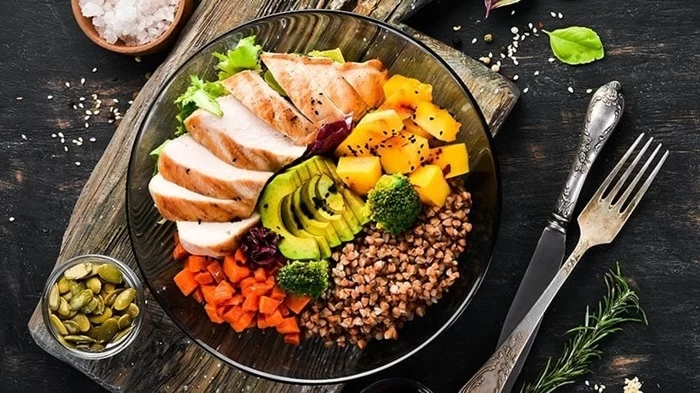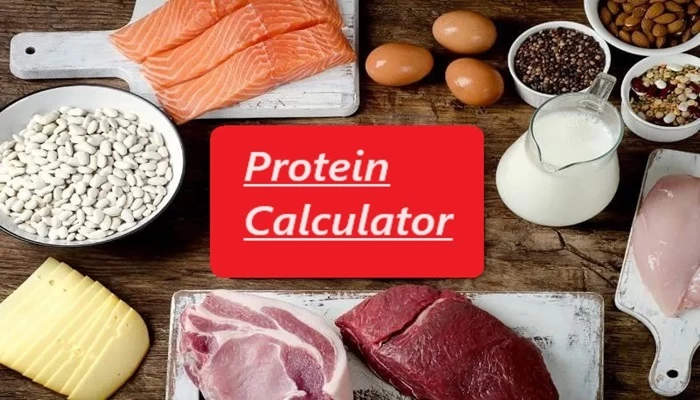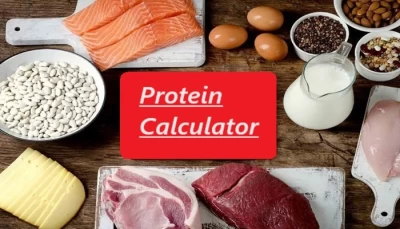Role of Protein Intake in a Healthy Lifestyle
Find out how protein intake is linked to muscle gain and get insights into recommended daily amounts.
Proteins
Proteins are like helpers for our bodies. They're one of the main things our body needs to get energy, along with fats and carbohydrates. Proteins do a lot of important work inside our cells, helping tissues and organs work well. They're made up of amino acids, which are like tiny parts that our body needs to function correctly.
There are 20 different amino acids, and how they're arranged in a protein decides what it does. Our body can make some amino acids by itself, but there are nine that we can only get from food. These are called essential amino acids, and not having enough of them can be really bad for us, even leading to death. Foods that give us all these essential amino acids are called complete protein sources, like meat, dairy, eggs, fish, soy, quinoa, and buckwheat.
Proteins have different jobs in our bodies. Some, like antibodies, protect us from things like viruses and bacteria. Enzymes help make new molecules and do chemical reactions in our bodies. Messengers send signals to keep our bodies working right. Structural components are like building blocks for cells, helping our body move. Transport and storage proteins move things around our body.
How Much Protein Should I Eat to Gain Muscle?
How much protein your body needs each day depends on different things, like how much energy you use, how much you're growing, and how active you are. A protein intake calculator could be more helpful in this regard. People often figure it out based on their weight, as a percentage of the calories they eat (between 10-35%), using a calorie calculator. Usually, it's said that 0.8 grams of protein per kilogram of body weight is the minimum amount you should have each day. This is the lowest amount to keep you healthy, but having more protein, up to a specific limit, might be good depending on where you get the protein from.
The recommended range for protein intake is between 0.8 grams and 1.8 grams per kilogram of body weight, and it depends on the things mentioned earlier. If you're very active or want to build more muscle, you might need more protein. Some say that really active people should have between 1.8 to 2 grams per kilogram. The exact amount of protein a person should eat is not precisely known yet. Hence, it's a good idea to talk to an expert like a dietitian, doctor, or personal trainer to figure out what's right for you.
Food With High Content or Protein

Eating enough protein is essential, and there are lots of food combinations that can help you meet your needs. It's easier to meet your protein goal by eating meat and dairy, but too much of them can be bad for your health. There are also plant-based protein options, but they usually have less protein per serving. To have a balanced diet with all the necessary nutrients, it's best to eat a mix of meat, dairy, and plant-based foods.
Complete proteins are essential for a balanced diet as they contain all nine essential amino acids that the human body cannot produce on its own. Among the meat and dairy examples, eggs, chicken breast, cottage cheese, Greek yogurt, milk, lean beef, tuna, turkey breast, fish, and shrimp stand out as excellent sources of complete proteins.
However, for individuals following a vegan or plant-based diet, there are still ample options available. Plant-based complete protein sources include buckwheat, hummus and pita; soy products such as tofu, tempeh, and edamame beans; peanut butter on toast or other bread; beans and rice; quinoa, and hemp and chia seeds. Additionally, spirulina, a blue-green algae, is another noteworthy plant-based complete protein source. Incorporating a variety of these options into one's diet ensures a sufficient intake of all essential amino acids for overall health and well-being.
Meat, poultry, fish, eggs, and dairy are complete protein sources. Nuts, seeds, legumes, grains, and vegetables are usually incomplete proteins. However, it's okay to eat incomplete proteins as long as you have a variety to get all the amino acids your body needs. You can eat more than complete protein foods specifically. Some high-fat red meats, which are complete proteins, can be unhealthy.
Proteins
Proteins are like helpers for our bodies. They're one of the main things our body needs to get energy, along with fats and carbohydrates. Proteins do a lot of important work inside our cells, helping tissues and organs work well. They're made up of amino acids, which are like tiny parts that our body needs to function correctly.
There are 20 different amino acids, and how they're arranged in a protein decides what it does. Our body can make some amino acids by itself, but there are nine that we can only get from food. These are called essential amino acids, and not having enough of them can be really bad for us, even leading to death. Foods that give us all these essential amino acids are called complete protein sources, like meat, dairy, eggs, fish, soy, quinoa, and buckwheat.
Proteins have different jobs in our bodies. Some, like antibodies, protect us from things like viruses and bacteria. Enzymes help make new molecules and do chemical reactions in our bodies. Messengers send signals to keep our bodies working right. Structural components are like building blocks for cells, helping our body move. Transport and storage proteins move things around our body.
How Much Protein Should I Eat to Gain Muscle?
How much protein your body needs each day depends on different things, like how much energy you use, how much you're growing, and how active you are. A protein intake calculator could be more helpful in this regard. People often figure it out based on their weight, as a percentage of the calories they eat (between 10-35%), using a calorie calculator. Usually, it's said that 0.8 grams of protein per kilogram of body weight is the minimum amount you should have each day. This is the lowest amount to keep you healthy, but having more protein, up to a specific limit, might be good depending on where you get the protein from.
The recommended range for protein intake is between 0.8 grams and 1.8 grams per kilogram of body weight, and it depends on the things mentioned earlier. If you're very active or want to build more muscle, you might need more protein. Some say that really active people should have between 1.8 to 2 grams per kilogram. The exact amount of protein a person should eat is not precisely known yet. Hence, it's a good idea to talk to an expert like a dietitian, doctor, or personal trainer to figure out what's right for you.
Food With High Content or Protein

Eating enough protein is essential, and there are lots of food combinations that can help you meet your needs. It's easier to meet your protein goal by eating meat and dairy, but too much of them can be bad for your health. There are also plant-based protein options, but they usually have less protein per serving. To have a balanced diet with all the necessary nutrients, it's best to eat a mix of meat, dairy, and plant-based foods.
Complete proteins are essential for a balanced diet as they contain all nine essential amino acids that the human body cannot produce on its own. Among the meat and dairy examples, eggs, chicken breast, cottage cheese, Greek yogurt, milk, lean beef, tuna, turkey breast, fish, and shrimp stand out as excellent sources of complete proteins.
However, for individuals following a vegan or plant-based diet, there are still ample options available. Plant-based complete protein sources include buckwheat, hummus and pita; soy products such as tofu, tempeh, and edamame beans; peanut butter on toast or other bread; beans and rice; quinoa, and hemp and chia seeds. Additionally, spirulina, a blue-green algae, is another noteworthy plant-based complete protein source. Incorporating a variety of these options into one's diet ensures a sufficient intake of all essential amino acids for overall health and well-being.
Meat, poultry, fish, eggs, and dairy are complete protein sources. Nuts, seeds, legumes, grains, and vegetables are usually incomplete proteins. However, it's okay to eat incomplete proteins as long as you have a variety to get all the amino acids your body needs. You can eat more than complete protein foods specifically. Some high-fat red meats, which are complete proteins, can be unhealthy.
Conversation
Latest Blogs
© Blog CoolCalculator, Explore CoolCalculator, your destination for the latest insights, tips, and updates on the world of online calculators. Stay informed and make your calculations smarter with our blog. ,
Designed
by Saad Media Team , Team Lead M.Rizwan Akhtar














